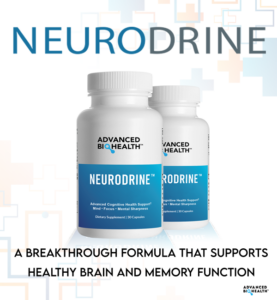Can fish oil really improve memory?

A lot of people take supplements like fish oil in the hopes that it will improve their memory, but the jury is still out on whether or not this really works. In this article, we’ll take a look at some of the scientific evidence behind fish oil and memory, and see if there’s anything to support these claims.
What is fish oil?
Fish oil is a type of oil that is derived from the tissues of oily fish. It is rich in omega-3 fatty acids, which are believed to be beneficial for health. Some people take fish oil supplements in an attempt to improve memory, although there is little scientific evidence to support this.
How does fish oil work?
Fish oil supplements are a popular way to improve one’s health, but can they really improve memory? Fish oil contains omega-3 fatty acids, which are thought to be beneficial for brain health. Some studies have found that fish oil supplements can improve memory and cognitive function in people with Alzheimer’s disease and other forms of dementia. However, more research is needed to confirm this information. In addition, it’s not clear how much fish oil is needed to see these benefits. If you’re considering taking fish oil supplements for memory enhancement, talk to your doctor first to discuss whether they’re right for you.
What are the benefits of fish oil?
Fish oil is a dietary supplement that is rich in omega-3 fatty acids. These fatty acids are important for brain health and function. Some research suggests that fish oil may improve memory and cognitive function in people with Alzheimer’s disease and other forms of dementia. Fish oil may also improve cognitive function in healthy adults. The omega-3 fatty acids in fish oil are thought to promote brain health by reducing inflammation and improving blood flow to the brain.
Are there any risks associated with taking fish oil?
There are a few risks associated with taking fish oil supplements. These include:
-Fish oil can thin your blood, which can increase the risk of bleeding and bruising.
-Fish oil can also interact with other medications you may be taking, such as blood thinners or cholesterol-lowering drugs.
-Some people may experience an allergic reaction to fish oil supplements, including hives, difficulty breathing, and swelling of the face, lips, or tongue.
If you are considering taking fish oil supplements, be sure to talk to your healthcare provider first to weigh the risks and benefits.
How can I get more fish oil in my diet?
Fish oil is a popular dietary supplement, and many people take it in the belief that it will improve their memory. However, there is little scientific evidence to support this claim.
There are several ways to get more fish oil in your diet. You can take supplements in capsule or liquid form, or you can eat fish that are high in omega-3 fatty acids, such as salmon, tuna, mackerel, herring, and sardines. You can also get omega-3 fatty acids from plant sources, such as flaxseed oil and chia seed oil.
If you decide to take fish oil supplements, it is important to choose a high-quality product from a reputable manufacturer. Be sure to check the label carefully to make sure you are getting what you expect. And remember that more is not necessarily better – too much fish oil can actually be harmful.
Conclusion
Although there is still much research to be done on the topic of fish oil and memory, the current evidence suggests that fish oil can indeed improve memory, especially in older adults. If you are looking for a natural way to boost your memory, adding fish oil to your diet is a good place to start.






